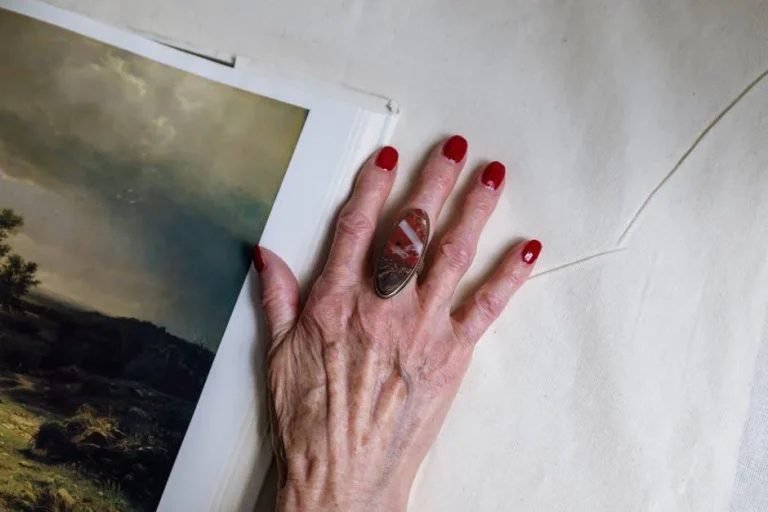The Spiritual Side of Self-Care: How Traditions Support Mental Wellbeing

Self-care is becoming an increasingly important part of daily life as a way to provide breathing space in hectic schedules and to improve mental health. Day in and day out, your schedule can be packed full of non-stop activities, leaving barely any free time for yourself. But it is vital to make time for a breather and some reflection to clear the mental clutter and reduce mental health issues, such as burnout, stress, anxiety and depression. It is more important than ever these days because it can be difficult to escape the hustle and bustle of life due to our reliance on technology. You can be constantly surrounded by reminders and comparisons that can take a toll on your mental health.
Because of this, many people are turning to self-care, which is doing something that you love or that refreshes you. These are activities like spa days, reading a book, undergoing a digital detox, and even enjoying detox smoothies. These are all nurturing self-care activities that can boost your mental health and provide you with a much-needed break from daily life. Self-care may seem like a pretty new thing due to this new approach, but it has been something people have done for centuries- just in different ways. Communities across the world have relied on spiritual traditions as a way to center themselves, process grief, and find peace. In fact, many spiritual practices have shown that they can provide you with a profound and lasting form of self-care. Spiritual activities can address the soul just as much as the mind and body.
Explore the spiritual side of self-care and see how traditions can support mental well-being to encourage you to implement it into your self-care routine.
Tradition as a Tool for Inner Balance
Carrying out spiritual traditions can bring structure to your day and provide a moment to pause and reflect. These are something that come at certain times of the year, allowing you to purely focus on your spirituality. Spiritual traditions encourage you to step away from your usual routine and take a breather from everyday distractions, such as technology, to look within, no matter if you’re praying, remembering, or even fasting. Participating in this intentional reflection can give you the opportunity to reset emotionally and mentally, creating a buffer against the constant demands of everyday life.
Such traditions are not limited to any one culture or religion. From the stillness of a Buddhist retreat to the meditative chants of Gregorian monks, the act of spiritual self-care is found across geographies and generations. These moments offer more than religious observance. They provide an opportunity to process emotions, seek clarity, and ground yourself amid uncertainty.
The Role of Collective Experience in Healing
A key part of spiritual self-care that gets overlooked by many people is the sense of shared experience it brings to communities. When you participate in a tradition with others, you can create strong relationships with them and build solidarity. These positive outcomes of having a community to support you that shares the same values and interests can really improve your individual well-being. Whether you’re fasting with your community, attending a sacred procession, or implementing spiritual practices at a local center, you can feel a part of something greater. Having this support and feeling of purpose can reduce loneliness, which is a major contributor to mental health issues.
These collective observances remind us that we are not alone in our struggles. They offer a safe space where grief, hope, and renewal are not only acknowledged but are given meaningful expression. In the act of coming together, people often find their own burdens lighter and their resilience stronger.
Sacred Time as a Boundary
In many spiritual traditions, sacred times work as intentional boundaries between the everyday, typical routine and the more meaningful, deeper purpose. These are days or periods that have been set aside not for productivity or consumption but for quiet contemplation and personal growth. They help you to slow down mentally and take proper time to gather your thoughts, feelings, and spiritual needs to help you work on them and improve them.
For example, the Islamic month of Muharram is observed as a time of reflection and remembrance. For many, it serves as an annual opportunity to step away from the noise of daily life and reconnect with values, history, and a deeper sense of purpose. In this way, spiritual tradition becomes a form of emotional detox.
Mindfulness Rooted in Ancestry
Mindfulness is a common term today, but it has been used for centuries in various forms of spirituality. Today’s type of mindfulness is connected to apps, courses, and guided meditations by notable figures. However, it’s all based on an ancient practice that is rooted in cultural and spiritual traditions. These traditions have encouraged many people to be fully present in the moment and to think in a different way, reframing the mind from a negative state to something more positive. Mindfulness has stemmed from various cultural practices, such as the Jewish practice of Shabbat, the Hindu practice of japa (mantra repetition), and the Indigenous ceremonies that honor nature.
Modern mindfulness practices continue to encourage everyone to be present in the moment and unlock different areas of the mind. This means that when you do mindfulness, you’re following in the footsteps of the past spiritual leaders and honoring the roots of which this spiritual practice has come from. Mindfulness can help you gain mental clarity and a stronger connection with your identity and heritage- providing you with stability during hard times, both personally and within society.
A Path to Meaning, Not Just Relief
While much of today’s self-care aims to reduce stress or manage burnout, spiritual traditions often go further by offering meaning. Instead of temporarily alleviating discomfort, they provide awareness and understanding of suffering, joy, and the journey of life itself. This can be incredibly healing, especially when you’re tackling deeper emotional pain, as it reframes adversity through a lens of growth and transformation.
These traditions help you to make sense of your experiences and place them in a bigger picture, making them seem not as huge as they once did. By doing this, you can feel empowered to cope with negative situations and move forward in life with a greater purpose to guide you and a sense of inner peace.
Spiritual self-care has remained for centuries, and will continue to do so, because it speaks to the human need for connection, reflection, and healing. As you discover what it truly means to take care of yourself, you should implement these practices to help you thrive in life and gain better overall mental well-being.





